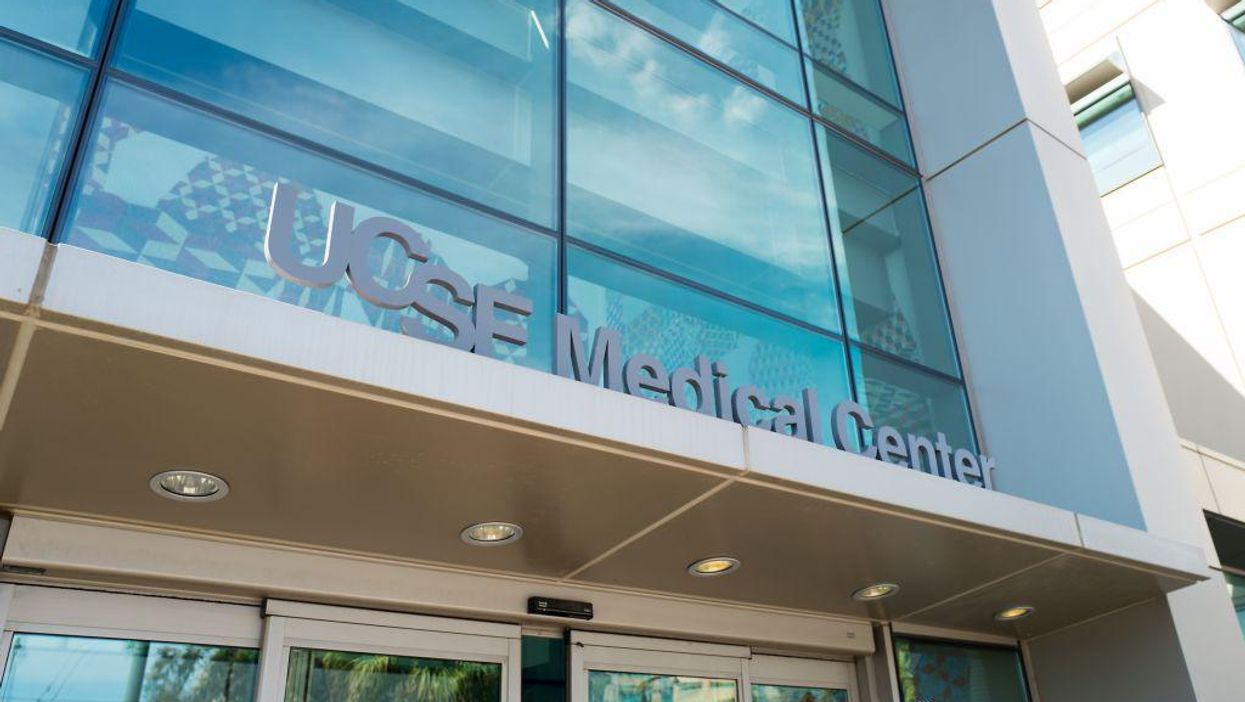
Smith Collection/Gado/Getty Images

A doctor with the University of California San Francisco hospital system is sounding the alarm on the real crisis facing hospitals: staffing shortages made worse by the state's strict quarantine rules.
Dr. Jeanne Noble, an associate professor of emergency medicine at UCSF, explained to SFGATE that public officials panicking over the surge in COVID-19 hospitalizations are neglecting to account for incidental positives — people who test positive for COVID at the hospital after being admitted for unrelated reasons. Failing to recognize this important distinction has led reported COVID hospitalization rates to "greatly exaggerate COVID burden," Noble, the director of COVID response for UCSF's emergency department, said on Twitter this week.
"The real COVID crisis that our hospitals are facing is a severe staffing shortage that is compromising the quality of our care," Noble told SFGATE.
As currently reported, COVID hospitalization rates greatly exaggerate COVID burden. Incidental positives account for large majority of hospitalized cases in both LA and Bay Area.https://www.youtube.com/watch?v=f_6aQSCB0FE\u00a0\u2026— Dr. Jeanne Noble (@Dr. Jeanne Noble) 1641796654
Her diagnosis comes as California is considering canceling elective surgeries because hospitals are inadequately staffed to care for patients, SFGATE reports. To deal with the problem, the California Department of Public Health has controversially loosened isolation and quarantine requirements for health care workers, which will allow COVID-positive and exposed staff to return to work more quickly. Staff who are asymptomatic will not have to quarantine but must wear N95 masks and as much as possible work with patients who are already COVID-positive.
These measures are being adopted in anticipation of a flood of COVID cases that public officials warn could overwhelm hospitals. But Noble thinks those concerns don't reflect the reality of the Omicron variant.
She made her case after examining the charts of every COVID-positive patient at UCSF hospitals on Jan. 4 , discovering that 70% of them were in the hospital for other reasons. Noble said she looked at four UCSF campuses (UCSF Parnassus, Mission Bay, Mount Zion, and Children’s Hospital of Oakland) and identified 44 hospitalized patients, including adults and children, who had COVID. Of those patients, just 13 had been admitted to the hospital because of COVID.
The other 31 patients tested positive after being admitted for unrelated reasons, including a hip fracture and a bowel obstruction. Noble said they are all "completely asymptomatic or minimally symptomatic," highlighting how the Omicron variant causes less severe disease than previous variants.
SFGATE added that while case counts are breaking records in California, fewer people are hospitalized with COVID today compared to this time last year. And in highly vaccinated areas such as Los Angeles, where 71% of eligible people are vaccinated, two-thirds of hospital cases were identified on screening for the virus, according to the L.A. Times, meaning they weren't sent to the hospital because of COVID, only found to have it after the fact.
"The crisis from the Omicron peak is not generated by serious COVID illness in regions with highly vaxxed populations," Noble said. "The crisis we are suffering in the Bay Area is largely driven by disruptive COVID policies that encourage asymptomatic testing and subsequent quarantines. ... The vast majority of COVID-plus patients I take care of need no medical care and are quickly discharged home with reassurance."
Such disruptive isolation policies have contributed to hospital staffing shortages, closed businesses, shut down public transportation, contributed to long lines at testing sites, and prevented some children from attending school in person, SFGATE reported.
Meanwhile, Noble said her patients with COVID are not suffering from severe disease during the omicron surge.
“[Emergency departments] are flooded with the worried well that are simply seeking testing and reassurance,” she said. “I have not intubated a single COVID patient during this Omicron surge. We have a total of 5 patients with COVID on ventilators across our 4 hospitals. An average of 1.25 intubated COVID patients per hospital is a good news story."
During the pandemic, COVID hospitalizations have been the metric by which public health officials have implemented various restrictions on individuals and businesses. The Trump administration's infamous "15 days to slow the spread" social distancing guidelines were enacted to protect hospitals from reaching over-capacity with COVID patients.
But some experts question the need for strict coronavirus policies if most people aren't being sent to the hospital because of COVID, especially with so many Americans being vaccinated and protected from severe disease and death. They also point out that as hospitals nationwide report incidental coronavirus cases, total COVID hospitalizations become a less relevant measure for policymakers.
As public officials grapple with this knowledge, the U.S. is firmly in the grip of a coronavirus surge. According to NBC News, a record-breaking 1.34 million new COVID cases were reported Monday. The seven-day average for cases in the U.S. also reached a record high of 740,594 cases per day, with 24 states reporting their highest seven-day average of all time. Hospitalizations with or for COVID are soaring as well, reaching 135,574 as of Monday, an 83.1% increase in the last two weeks. The fact that some people could have asymptomatic or mild Omicron cases without getting tested means these numbers are likely an underestimate of the true number of COVID cases in the country.
The Centers for Disease Control and Prevention warned Friday that "the entire country is now experiencing high levels of community transmission."
"While early data suggest omicron infections might be less severe than those of other variants, the increases in cases and hospitalizations are expected to stress the healthcare system in the coming weeks," the CDC said in its weekly COVID review.
But who is going to the hospital for COVID? How many people are in the hospital for other illnesses and test positive incidentally? Those questions matter, and the government doesn't have answers.